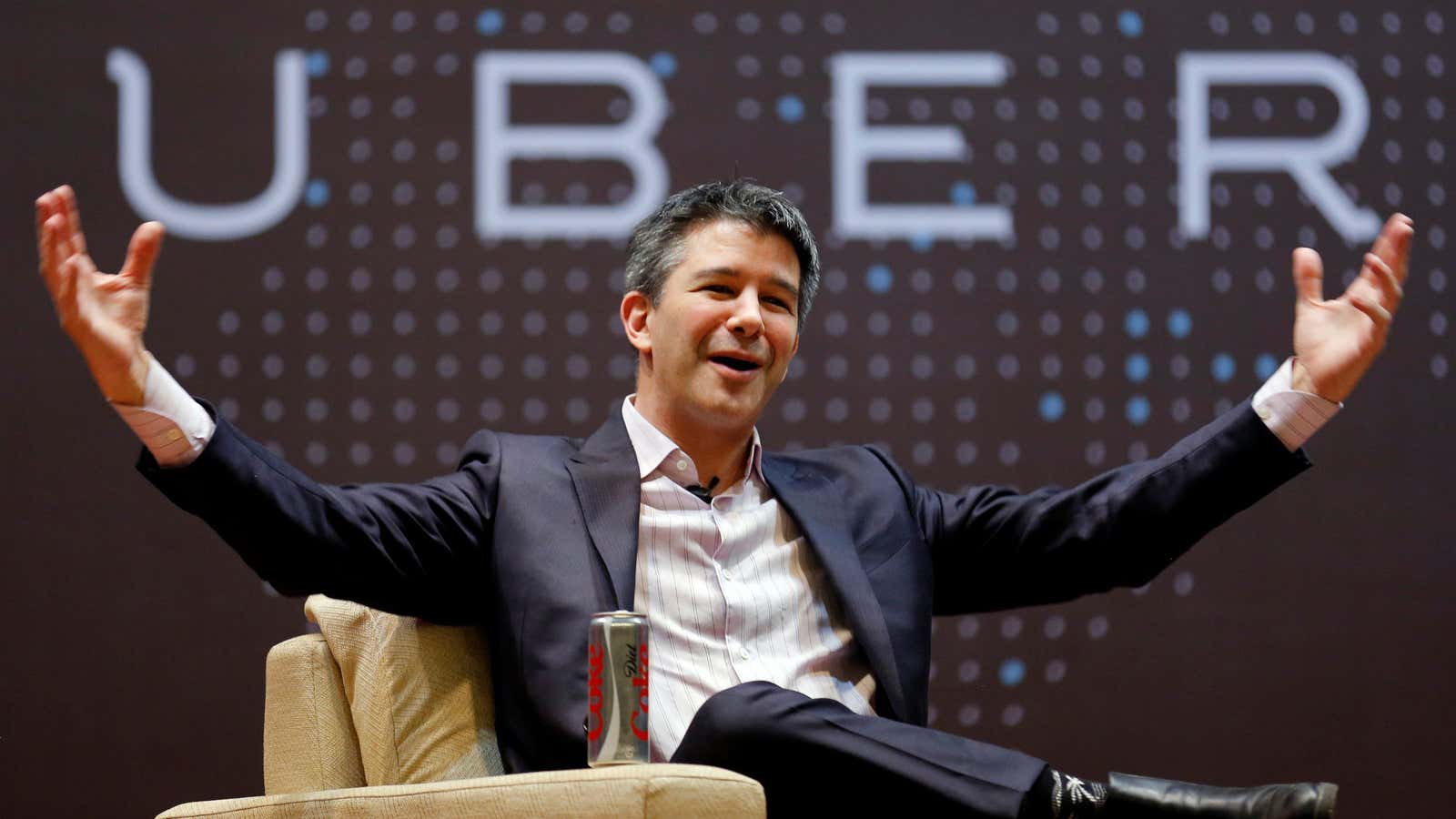Disruption isn’t just a buzzword in Silicon Valley—it’s a religion. And its high priest is undeniably Uber, the ride-sharing service that revolutionized transportation by allowing customers to hail a cab with the push of a button.
Uber has long prided itself on ignoring the status quo and rewriting the rules. Its rapid expansion came about because it was willing to ignore local laws and regulations governing transportation providers in order to enter new markets. Coupled with an aggressive marketing strategy and willingness to operate at a loss to underprice competition, Uber quickly built popularity and bullied local officials into changing the law for its benefit.
But reports of Uber’s toxic, hostile corporate culture reveal the dark side of the disruption creed. When innovators like Uber’s ousted CEO Travis Kalanick act as if they are above the law, their companies often act as they are above petty concerns about discrimination and sexual harassment, too. Kalanick’s departure may signal that change is afoot at Uber. But the culture of disruption continues to pervade Silicon Valley—which makes it all the more important to learn from the company’s missteps.
With a pantheon of privacy-invading tools, Uber has used its position to stay ahead of the competition and law enforcement while also eroding privacy standards to the detriment of its customers. Uber’s permissions now require users to agree to let the app track their location, even when the app is not in use. With access to this data, Uber is able to, in its own words, play god. Over the last year we’ve learned about Uber’s “God View” tool (now renamed “Heaven View”—really just as megalomaniacal), which can track all Uber vehicles and customers who have requested a car. Uber has used this tool at the corporate level to intimidate a journalist working on a story about Uber’s competitors, as well as in combination with another tool, “Greyball,” to identify undercover police attempting to crack down on Uber’s violation of transportation regulations.
Part of the problem is that the repercussions for violating regulations, including Uber’s own privacy policy, have been too small to matter to a company driven by a desire for profit and industry dominance. Uber was fined $20,000 for accessing the journalist’s records and over $67,000 for violating regulations when it launched in Portland, Oregon. For a company that made over $6.5 billion in revenue in 2016, breaking the law is just a small part of the cost of doing business.
Given Uber’s willingness to ignore both the letter and the spirit of the law to get ahead, recent stories about its toxic workplace shouldn’t come as a surprise. Instead of developing a culture that promotes employees regardless of gender and race, Uber supported employees who harassed, demeaned, and undermined their colleagues. In its pursuit of innovation, Uber tolerated bad, and even illegal, behavior.
In many ways, Uber embraced a dark interpretation of Facebook’s famous motto, “Move fast and break things.” A willingness to break things is one thing when dealing with code; it’s quite another when people’s privacy and dignity are at stake. Although Uber finally fired 20 employees following an internal investigation of harassment, we have to wonder whether, as with paying fines, Uber saw this as just another cost of doing business.
The end of the Kalanick era suggests that Uber has learned that some norms cannot be ignored. But the disruption culture that created Uber, which reveres commercial success over ethical business practices, is still very much in place. It’s time for startups to internalize the lesson that it’s one thing to challenge industry norms—quite another to ignore the law, or the standards of basic human decency. Even unicorns have to watch their step.
